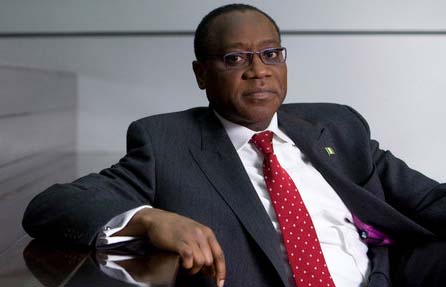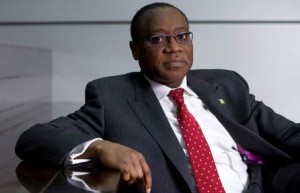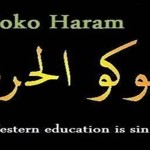News Analysis: Time For Nigeria To Embrace Economic Diplomacy
Latest Headlines, News Wednesday, April 16th, 2014
Oyewale Oyelola
Critical appraisal of Nigeria’s Foreign Policy since independent clearly shows that Africa is the main focus of the country’s external relations. Nigeria being the gaint of Africa and most populous black nation with over 140 million citizens believe peaceful and prosperous Africa means peaceful and prosperous Nigeria.
Since the first republic, Nigeria ’s foreign policy had been largely Afro-centric in posture. In his statement just before independence, on August 20, 1960, Prime Minister Tafawa Balewa at the Federal House of Assembly stated that Nigeria was, “adopting clear and practical policies with regard to Africa ; it will be our aim to assist any country to find solution to its problem”.
Similarly, one significant event that took place under late General Ironsi’s regime was the June 1966 Ambassadors’ Conference held in Lagos to re-examine the premises and directions of Nigeria ’s foreign policy. Among many other things, the conference re-dedicated Nigeria to the total emancipation of all African territories still under colonial tutelage and racial discrimination. This position was further reinforced when General Ironsi stated that, “in the whole sphere of external relations, the Government attaches greatest importance to our African policy”.
It is under the above foreign policy directions, among others, that Nigeria ventured in to the complex theatre of international relations. This position could be appreciated when we consider the fact that successive regimes in Nigeria accorded significant attention to Africa as the centre-piece of Nigerian foreign policy.
However, appraisal of various engagements made by Nigeria towards an African agenda in areas such peace keeping missions, decolonization of the continent as well as other bilateral and multilateral aid she rendered in the continent, would to a very large extent show that the omnibus nature of the principle of African centeredness in the Nigerian foreign policy does not appear to be well aligned to the country’s national interests or has not served the national interest in a commensurate measure.
Nigeria has been in the forefront in the establishment and sustaining various continental and regional organizations. For instance, the Organization of African Unity (OAU) established on May 25, 1963, was primarily aimed at achieving two important objectives, namely: to ensure the quick decolonization of the remaining colonies in Africa and secondly to facilitate the rapid socio-economic growth and development of African states. In this respect, Nigeria did a lot in ensuring the implementation of the primary objectives upon which OAU was founded. For instance, in 1975, Nigeria granted the sum of N 13.5 million and military assistance to Angola ’s MPLA and also enlisted diplomatic support for the Angolan government within the O.A.U.; this had greatly accorded recognition to the Angolan government by many African states who were hitherto unwilling to give such recognition.
Nigeria ’s deep involvement in African affairs, a pursuit that had cost the country huge financial and human resources could be seen from other endeavors undertaken by the country in other African states. Let’s take for example Nigeria ’s involvement in the ECOWAS military intervention group, ECOMOG. As desirable as it was to bring peace and stability to the West African sub-region, the venture had cost the nation enormous financial recourses and unspecified number of troops who lost their lives. The above scenario was succinctly captured by Ambassador F. George who stated that, “The historic contributions of Nigeria to regional peace missions in Liberia and Sierra-Leon which cost the country the whooping sum $10 billion, not to mention the gallant men and women of Nigerian Armed Forces who paid the supreme sacrifice in the cause of peace, are hardly acknowledged by the international community.” He further emphasized that this does include the sum of about US$ 90 billion that Nigeria single-handedly incurred in the OAU Peace Keeping Force that was deployed to Chad in 1980s.This is in addition to the sum of US$ 800 million Nigeria Trust Fund established under African Development Bank, ADB, to assist African countries obtain soft loan to execute vital projects. Surprisingly, it is with connivance of some of these African states that Nigeria was denied the presidency of ADB in an election that was held right on Nigerian soil. What a back-stab.
The regime of President Obasanjo intended to refocus Nigeria’s foreign policy in order to de-emphasize the overly African bias when he announced to newly appointed ambassadors in 1999 that, “Nigeria’s foreign policy today extend, however, far beyond our concern for the well being of our continent, Africa”. He further pointed that, “The debt burden, for instance, is not an exclusively African predicament. Many countries in Asia, the Caribbean and the South America are facing similar problems. It is imperative therefore, that these regions harmonize their efforts in the search for a fairer deal from the industrialized nations of the west; and this requires of us a more global approach to world affairs than was previously the case”. The above statement spurred great expectations from various foreign policy experts, hoping that Nigeria would now enunciate and articulate more global vision in her foreign policy pursuit. Paradoxically, the nation became more involved in the African agenda.
Many Nigerians home and abroad have being agitating that Federal Government to rethink her ‘Africa First’ foreign policy, to reshape country’s foreign relations toward economic diplomacy which will be more beneficiary to the masses.
Critics of the Afro-centric foreign relations believe that other African nations are not giving Nigeria necessary recognition and respect to justify her spending on the continent.
Nigeria President was snubbed from making speech during the Mandela burial in December,2013 despite the role played to stop apartheid regime in South Africa. While some Africa countries still work against the interest of Nigeria in international arena.
It is therefore necessary for Nigeria to formulate foreign policy framework tailored towards economic development of the country. Nigeria should emulate US who’s economic and political interests are the major determinant of its foreign policy.
Related Posts
Short URL: https://www.africanexaminer.com/?p=10129























